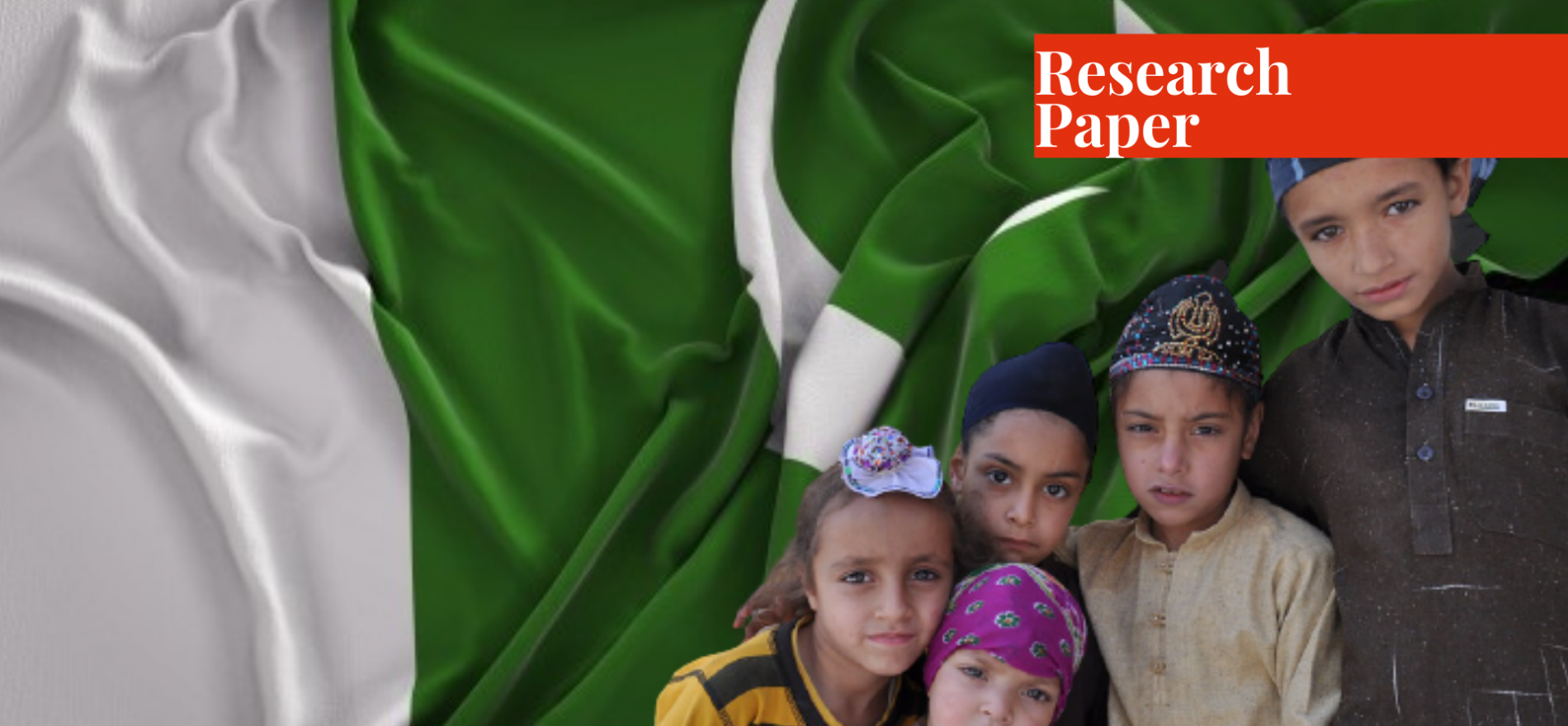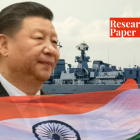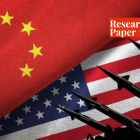Mr. Ahmad Wadeer received his M.A. in Social Anthropology from the University of Peshawar.
Legal Protection of Minorities
Pakistan is a country where people of different religions live, but their number is less than Muslims. This is why they are recognized as minorities by the Constitution of Pakistan. Article 20 of the Constitution of Islamic Republic of Pakistan 1973 states that “subject to law, public order, and morality, (a) every citizen shall have the right to profess, practice and propagate his religion; and (b) every religious denomination and every sect thereof shall have the right to establish, maintain and manage its religious institution”.
Article 21 protects against taxation for any particular religion. Article 22 safeguards educational institutions in respect of religion, etc (no student can be barred based on his or her religion). Article 25 discusses the equality of citizens. Article 26 details non-discrimination in public places. Article 27 safeguards the service sector of Pakistan from discrimination.
Article 28 details the preservation of language, script, and culture. Furthermore, Article 36 states that “The state shall safeguard the legitimate rights and interests of minorities, including their due representation in the Federal and Provincial services” (Constitution of Pakistan, 1973: 29).
The founder of Pakistan, Muhammad Ali Jinnah, also projected the equal rights of minorities in his speeches. One of his famous statements was “minorities, to whichever community they may belong to, will be safeguarded. Their religion or faith or belief will be secure. There will be no interference of any kind with their freedom of worship. They will have their protection concerning their religion, faith, their life, their culture. In all respects, they will be the citizens of Pakistan without any distinction of caste or creed. They will have their rights and privileges and no doubt, along with it goes the obligation of citizenship. Therefore, minorities have their responsibilities and play their part in the affairs of this State. As long as the minorities are loyal to the State and owe true allegiance and as long as I have any power, they need have no apprehension of any kind.”
Currently, the total population of Sikhs is about 27 million, of which approximately 83 percent live in India. In Pakistan, the total population of the Sikh community is 60,000 – and most of them live in Punjab, Khyber Pakhtunkhwa, and adjacent tribal areas (Sikh, 2018).
According to the latest data, Sikh families used to live in Khyber, Kuram, and Orakzai agency and some parts of the Swar district. Most of these families have migrated to Peshawar because of the war on terror, and chose to settle in an area called Mohalla Jogan Shah. This area is named after Sikh scholar Jogan Singh.
Brief Summary of Sikhism
The foundation of Sikhism was laid down by Guru Nanak Dev Ji in the 15th century in District Nankana Sahib (Punjab area of the Indian Subcontinent – now Pakistan). Sikh is a Sanskrit word that means a learner or disciple. However, Sikhs define the term Sikh differently.
According to them, a Sikh is a person who is a faithful believer in one immortal being, ten Gurus (Guru is Sanskrit word which means the removal of darkness, or simply, a teacher), and the Guru Granth Sahib (the holy scripture of Sikhs regarded as the final and eternal living Guru). They also believe that a Sikh has to believe in the teachings of the ten Gurus and the baptism passed on by the tenth Guru.
A Sikh, by their definition, can not pledge allegiance to any other religion (Nesbitt, 2005). The religion of Sikhism is based upon the teachings of Guru Nanak and his successors. His teachings mostly emphasized devotion to God, service for others, cherishing family life, and engaging in hard work. Guru Nanak has summed up Sikh teachings in these words, “Realization of truth is higher than all else. Higher still, is truthful living” (Teece, 2003).
According to Sikhism, there is only one God “Waheguru” who created this world and all the livings things, who is beyond the understanding of human beings, is indescribable and everywhere, and is neither male nor female (Mayled, 2002). According to Sikh Gurus, the primary purpose of Sikh life is not to achieve salvation or paradise, but to develop the best in themselves. Guru Nanak stated, “if a man loves to see god, what cares he for salvation or paradise?” (Singh, 1938).
Methodology
Qualitative research methods have been used while conducting this study. The tools used for data collection include rapport building, key informant interviews, one-on-one interviews, and focus group interviews. Due to the research’s sensitivity, rapport building played an important role to get candid responses from the Sikh community.
Unstructured interviews were conducted since such interviews allow the researcher to uncover hidden knowledge inside the subjects’ minds (Richard & Lewis, 2003). Due to security reasons, most participants in the group were not willing to give individual interviews. Thus, there were only 12 one-on-one interviews.
Focus group discussions were used to gain large amounts of information in a relatively short period. The researcher conducted two focused group discussions, and each group consisted of seven participants that lasted for an hour. Four key informant interviews were conducted during this study and the informants were selected based on their knowledge about their community. A total of thirty respondents were selected for this study.
Socio-Economic Conditions
Sikhs have been living in Khyber Pakhtunkhwa (KPK) for centuries – however, there is a common stereotype about them. Locals think that Sikhs migrated from India during partition. However, the data reject the notion of their migration. It was identified through an interview that their ancestors came to KPK during Maharaja Ranjit Singh’s reign (1801 – 1839), and settled in KPK (formerly known Fata division).
Moreover, when the partition of the subcontinent took place, most of the Sikhs and Hindus who were living in Pakistan (and mainly in the Punjab region) were forced to leave Pakistan due to the large-scale massacres that happened in both India and Pakistan. However, the Sikhs living in KPK did not experience any violence against them, because the Pashtuns living in KPK took their safety into their own hands.
Thus, KPK became a haven for thousands of Sikhs. They further added that Pakistan is for them, as Mecca is for Muslims because the founder of their religion, Guru Nanak, was born in Pakistan. This makes Pakistan a sacred land for Sikhs across the world. Apart from being labelled as Indians, the Sikh community in Peshawar also faces problems in the legal registration of their marriages.
According to a key informant, their marriages are not being legally registered. Their marriages occur in their local Gurdwaras, where they are provided with marriage certificates. However, local courts have not acknowledged their marriages because there are no clear laws present for Sikh marriages.
Married couples cannot easily open bank accounts because of the lack of a marriage certificate, and widows face difficulties in claiming the rights to the properties of their deceased husbands. Sikhs in Peshawar also complained that the provincial government did not provide the Sehat Insaf cards to them. Sehat Insaf is a program launched by the KPK government in 2016, which aims to provide free treatment for dangerous diseases.
During interviews, a member of the Sikh community said that he was being denied the Sehat Insaf card because the program was based on the Islamic system of Zakat. Sikhs say that the officials who provide this card state that this is part of Zakat, and can be given only to Muslims. The cards were issued to people of the province by the KPK government under its two-year health insurance scheme called Sehat Ka Insaf.
Besides not being given the Sehat Insaf card, they also face issues while obtaining a Computerized National Identity Card (hereafter CNIC). It came to light, during a focused group discussion, that the Sikh community in Peshawar has had no representation in grade seventeen or above government officials. The quota of government officials for minorities is one to two percent.
Moreover, during the focus groups, the Sikh community discussed how government officials do not usually attest their documents. They further added that there are several cases where members of the Sikh community were labeled as Muslims in their CNICs. The Sikh community in KPK make a significant contribution to the economy of the country.
Most of the members of the Sikh community in KPK own medical stores, clothing stores, mobile stores, cosmetics stores, and general stores. However, during the field study, the problems the Sikh business community was facing were highlighted. Sikh communities complain about the rising insecurity, which has forced many Sikhs to close their businesses.
Education
Education is the process of learning, or the acquiring of knowledge, skills, values, beliefs, and habits, and is the constitutional right of every human being. Nelson Mandela wisely stated, “education is the most powerful weapon that can change the world”. Education in Pakistan is controlled by the Federal Ministry of Education, and the provincial governments.
The federal government mostly assists in curriculum development, accreditation, and the financing of research and development (Education in Pakistan, 2018). Article 25-A of the Constitution of Pakistan obligates the state to provide compulsory and quality education free of cost to children of the age group 5 to 16 years (Constitution of Pakistan, 1973).
Pakistan’s literacy rate has declined from 60% to 58%, as revealed by Pakistan’s economic survey. Multiple factors contribute to this, but they boil down to a lack of funds. In 2017-18, the budget that the government allocated for education was Rs. 902.7 billion (Khawaja, 2018). The researcher identified through participant observation) that there is only a 2–5% educational quota for minorities.
There are almost five different religious minority groups living in Peshawar. Hindus and Christians have the highest population among these groups, enabling them to avail themselves most of the educational quotas. To cross-check this, universities and colleges were contacted and the findings were that there was only one seat for minorities in each department.
The Sikh community demands that this number be increased so that their children can also get higher education. During the key informant interviews, it came to light that Sikh children are being bullied in schools by their classmates, and sometimes even by their teachers. The respondents stated that children of other faiths make fun of the Sikh children’s turbans.
The respondents further added that harassment and discrimination are among the major reasons for the Sikhs pursuing business instead of education. Furthermore, through interviews, it was discussed how a young Sikh social worker named Gorpal Singh took initiative and opened up a school in 2013 by the name of Rising Hope. Most of the students who are enrolled in this school are Sikhs. However, this school also has students from other minority groups, and there are some Muslim students as well.
The director of this school complained about not having a permanent building, because of which the school had to change the premises thrice. The Sikh community in Peshawar asked the government to provide them with land for the school so that their children can pursue their studies without any difficulties.
Political Problems
Politics refers to activities that influence the actions and policies of the government and helps regulate people’s behavior within society. Political instability in any country or state occurs due to the discord between different institutions, lack of pluralistic norms, and resentments among different society apparatus.
Pakistan, since its inception, has consistently remained a victim of continual political crises. This political ordeal can be traced back to when the newly formed state was facing difficulties developing a constitution and deciding the official language (Riaz-Ud-Din, 2018). The politics in Pakistan occur within the structure set up by the constitution.
Pakistan is a federal parliamentary republic where the provincial governments enjoy a high degree of autonomy and residuary powers. Executive power is endowed with the national cabinet which is headed by the Prime Minister, who works coherently along with the bicameral parliament and the judicature.
Stipulations set by the constitution provide a delicate check and balance of sharing powers between executive, legislative, and judicial branches of the government (Politics of Pakistan, 2018). During key informant interviews, some of the main political problems that the Sikh community in Peshawar was facing were identified.
They highlighted how they were unable to contest as independent candidates during elections as the election commission of Pakistan allots minorities a small number of reserved seats. There are only three reserved seats for minorities in the provincial assembly of Khyber Pakhtunkhwa. Contesting as an independent candidate without the backing of a political party is challenging for minorities in Pakistan.
People mostly do not vote for independent candidates. According to the people of the area of research, voting for a non-Muslim is considered a sin. However, if the same non-Muslim contests elections in affiliation with a party, people vote for him due to loyalty to the party.
As an example, there was a case where a member of the Sikh community contested in the elections as an independent candidate and secured 52 votes only. They further added that political parties ignore prominent community members during general elections.
Radesh Singh Tony was also among those prominent members of the Sikh community. He is one of the elders of the Sikh community and a social worker who was ignored for tickets by political parties during elections. Instead of waiting for political parties to bet on him, he decided to stand as an independent candidate from PK-75.
The Sikh community has to face many problems merely because of not having a representative in the provisional government, who can fight for their rights. It is the constitutional right of the minority to be provided with protection by the government. Article 36 of Pakistan’s constitution states that “the State shall safeguard the legitimate rights and interests of minorities, including their due representation in the federal and provincial services”.
During interviews, it was discussed how Sikh community members went to the former Chief Minister (hereafter CM) of Khyber Pakhtunkhwa, Pervez Khattak, and asked the CM to provide them with security. The CM, instead of providing security, told them that it was a hard time for everyone and that the government did not have enough security forces to assign for the community’s protection.
The only assistance the government can provide is the ease in obtaining licenses for weapons for self-protection. Since 2014, ten members of the Sikh community in Peshawar have been murdered. Charanjeet Singh Sagar, one of the elders of the Sikh community and a social worker in Peshawar, was also among the ten victims who were murdered.
Charanjeet Singh was also one of the key informants for this research and provided vital information about Peshawar’s Sikh community. Charanjeet Singh was killed on May 29, 2018. He was killed in his shop when two unidentified men entered and asked him for chili powder. He turned to find the item, and the men opened fire – and ran away.
In 2017 (after nineteen years, and for the first time in the 21st century), the Pakistan Bureau of Statistics conducted a nationwide census. However, during the focus group discussion, it came to light that the Sikh community in Peshawar was left out of the national census. They stated that the official who was conducting the survey ignored them, despite the sizable population of Sikhs living in different parts of Pakistan.
Moreover, they added that every other minority group had been counted in this census, except the Sikh community – which is clear religious discrimination. The Sikh community has filed a case in Peshawar’s high court against the concerned department for excluding them in the national census.
Religious Problems
Religion is an organized system of beliefs and practices revolving around, or leading to, a transcendent spiritual experience. Almost every society in the world practiced some sort of religion (Mark, 2018). Most religions have narratives, symbols, traditions, and sacred histories intended to give meaning to life or explain the origin of life or the universe.
They tend to derive morality, ethics, religious laws, or a preferred lifestyle from their ideas about the cosmos and human nature. According to some estimates, there are roughly 4200 religions in the world (AN, 2018). Religion acts as a source of solidarity and identification for the individuals within a society, especially as a part of mechanical solidarity systems – and to a lesser but still significant extent in the context of organic solidarity.
Religion provides meaning for life, provides authority figures, and most importantly, it reinforces the morals and social norms held collectively by all within a society (Durkheim, 2005). Islam is the basis for, and the state religion of Pakistan. It is practiced by 95–96% of the total population. Out of which roughly 8% are Sunni Muslims, and 28% are Shias.
The remaining 4-5% are Pakistan’s religious minorities, the most important of which, in descending order of their number of adherents, are Christians, Hindus (including Jains), Zikris, the Ahmadiyya, Sikhs, the Baha’i, Buddhists, Zoroastrians (Parsis), the Mehdi Foundation, and Jews (Gregory & Valentine, 2009).
The Sikh community of Peshawar complains about different religious problems that they face in their daily lives. During a focused group discussion, a researcher found out that one major religious problem was that the Sikh community did not have any Shamshan Ghat (cremation ground) in Peshawar.
The nearest Shamshan Ghat is located in Hasan Abdal, which is 133.6 km away from Peshawar. Furthermore, they added that they had asked the government on several occasions to provide them with a piece of land where they can build Shamshan Ghat for themselves – but to no avail. The Sikh community in Peshawar also complains of the dilapidated condition of their Gurdwara (Temple) Bahi Joga Singh, located in Mohalla Jogan Shah of Peshawar.
This historical Gurdwara was built almost two centuries ago in the time of Maharaja Ranjeet Singh’s reign. It was stated during the interview that the Gurdwara is an important place; it is one of few that are left in Peshawar. It is the only Gurdwara that is open for the Sikh community in Peshawar till now. They said that the condition of this Gurdwara is deteriorating day by day. One can find cracks almost everywhere, and the building is on the verge of collapse.
Moreover, many complaints have been registered around the Gurdwara‘s condition with the Khyber Pakhtunkhwa Auqaf Department many times, but no action has been taken. During the key informant interview, an incident was narrated, where the members of the Sikh community were asked to convert to Islam by Assistant Commissioner Yaqoob Khan.
Some Sikhs had an issue with locals so they went to the assistant commissioner to solve the issue. However, instead of solving the issue, the commissioner asked them to convert to Islam. They added that if an ordinary person asked them to convert to Islam, they would not have reacted, but coming from a government official was a grave concern.
Conclusion
The Sikh community currently faces harassment, bullying, security issues, death threats, and impediments in running their businesses. They are also facing problems registering themselves as Pakistani citizens, and thus, in the registration of their marriages, properties, and assets. Being excluded from the national census means inadequate representation, and that is one of the reasons they are not covered under nationwide wellness programs such as Sehat Insaf.
Being unable to partake in the elections as party members, leads to inadequate representation in the government – which means that their voice is not heard on the right forums. They urgently require land for educational institutes, and burials, but have not been able to have any areas allocated to them. Their main temple (almost 200 years old) is in disrepair – on the verge of collapse, but there have been no actions taken to restore the sacred site.
To ensure the rights of minorities are protected, the government needs to take notice of the problems that are being faced. Many are small day-to-day issues that can be resolved immediately. Authorities need to ensure that matters are handled tactfully, and the masses need to be educated on how hate-speech and bullying lead to countless other societal issues. While the clauses in the constitution are thorough and fair, the implementation is missing.
References
- Asghar, N. (2015, January 14). Marriage Registration for Minorities in Pakistan.The Diplomat.
- Durkheim, E. (2005). The Dualism of Human Nature and its Social Conditions. Durkheimian Studies, 11: 35-45.
- Education in Pakistan. (2018, November 5). Wikipedia, the free encyclopedia. Retrieved from https://en.wikipedia.org/wiki/Education_in_Pakistan
- GOP, (1973). Constitution of Pakistan. Islamabad.
- Gregory, S. R. & Valentine, S. R. (2009). Pakistan: The Situation of Religious Minorities. United Nations High Commissioner for Refugees Status Determination and Protection Information Section.
- Khawaja, R. (2018, January 18). Literacy rate in Pakistan. The Nation. Retrieved from https://nation.com.pk/08-Feb-2018/literacy-rate-in-pakistan
- Mayled, J. (2002). Sikhism. Oxford: Heinemann Library.
- Mark, J.J. (2018, March 23). Religion in the ancient world. Ancient History Encyclopedia. Rederived from https://www.ancient.eu/religion/
- Nesbitt, E. (2005). Sikhism A Very Short Introduction, Oxford: Oxford University Press.
- Politics of Pakistan. (2018, August 29). Wikipedia, the free encyclopedia. Retrieved from https://en.wikipedia.org/wiki/Politics_of_Pakistan#cite_note-1
- Richard, J. & Lewis, J. (2003). Qualitative Research Practice: A Guide for Social Science Students and Researchers. London: Sage Publication.
- Riaz ud din, I. (2018, March 15). Historical Reasons of Political Instability in Pakistan. Dunya News. Retrieved from https://blogs.dunyanews.tv/20610/
- Singh, T. (1938). Sikhism: Its ideals and institutions. Kolkata: Orient Longmans Ltd.
- Sikh. (2018, February 28). Wikipedia, the free encyclopedia. Retrieved from https://en.wikipedia.org/wiki/Sikh
- Teece, G. (2003). Sikhism (Religion in Focus). London: Franklin Watts.
- Zakat. (2018, November 4). Wikipedia, the free encyclopedia. Retrieved from https://en.wikipedia.org/wiki/Zakat
If you want to submit your articles and/or research papers, please check the Submissions page.
The views and opinions expressed in this article/paper are the author’s own and do not necessarily reflect the editorial position of Paradigm Shift.



















